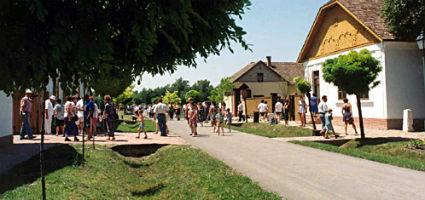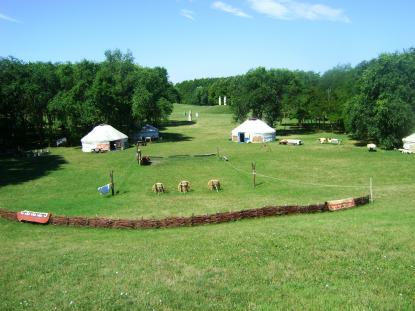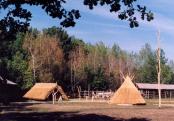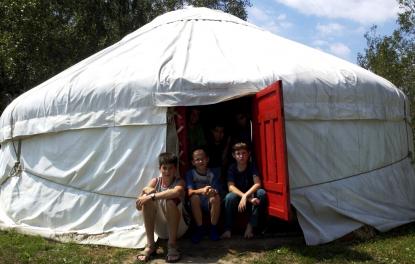2025. December 19. Friday
Ópusztaszer National Historic Memorial Park - Ópusztaszer
 |
Address: 6767, Ópusztaszer Szoborkert 68.
Phone number: (62) 275-133 /103, (62) 275-133 /104
E-mail: info@opusztaszer.hu
Opening hours: 01.04-30-10.: Tue-Sun 10-18
01.11-30.03.: Tue-Sun 10-16 (Skanzen, external exhibiton closed) The current fare for those interested informed about the institution's website: www.opusztaszer.hu |
On the site beside the horse court we set out to represent the history of the races of the Euro-Asian plains, and all this through archeological relics and ethnographic parallels. Before the Hungarian settlement Huns were one of the nomadic peoples of the region, who changed their life-style in the 10-11th centuries. This change could first of all be put down to the special geographic advantages of the Carpathian Basin. The settled way of living made it possible to form a feudal state and to survive. However, the founders of the Nomad Open-air Museum was not simply to represent the life-style of the Hungarians, but also to represent the civilization that was flourishing on the large area between Inner-Asia and the Great Hungarian Plains.

The homes, clothing, tools of the nomad people were designed in a very resourceful way. Their agriculture was characterized by a close connection to nature. However, contemporary documents and archeological relics also prove that their art was rather rich and refined. Entering the Nomad Park the visitors can get an insight into a culture once characterizing the life of our ancestors.
Visitors will be able to see the winter and summer accommodation of the nomads, and the traditional plants grown by them. Visitors can learn about and try out such crafts as weaving, leather processing, pottery, etc.

The homes, clothing, tools of the nomad people were designed in a very resourceful way. Their agriculture was characterized by a close connection to nature. However, contemporary documents and archeological relics also prove that their art was rather rich and refined. Entering the Nomad Park the visitors can get an insight into a culture once characterizing the life of our ancestors.
Visitors will be able to see the winter and summer accommodation of the nomads, and the traditional plants grown by them. Visitors can learn about and try out such crafts as weaving, leather processing, pottery, etc.
|
Related activities
|
||


